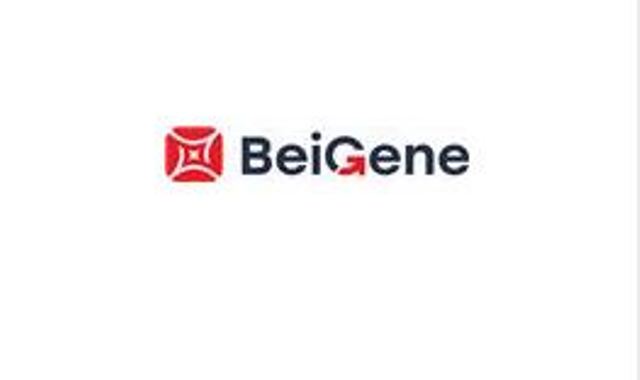
October 21, 2024,San Mateo, Calif., United States : Positive opinion for first-line treatment of gastric or gastroesophageal junction cancer based on results of RATIONALE-305 study demonstrating statistically significant overall survival benefit for TEVIMBRAin combination with platinum- and fluoropyrimidine-based chemotherapy
Positive opinion for first-line treatment of esophageal squamous cell carcinoma based on results of RATIONALE-306 study demonstrating statistically significant overall survival benefit for TEVIMBRA in combination with platinum-based chemotherapy
BeiGene, Ltd. (NASDAQ: BGNE; HKEX: 06160; SSE: 688235), a global oncology company, today announced that the Committee for Medicinal Products for Human Use (CHMP) of the European Medicines Agency issued positive opinions recommending an extended authorization for TEVIMBRA® (tislelizumab) in gastric or gastroesophageal junction (G/GEJ) adenocarcinoma and esophageal squamous cell carcinoma (ESCC).
In G/GEJ adenocarcinoma, the CHMP positive opinion is for TEVIMBRA in combination with platinum- and fluoropyrimidine-based chemotherapy for the first-line treatment of adult patients with HER2-negative locally advanced unresectable or metastatic G/GEJ cancer whose tumors express PD-L1 with a tumor area positivity (TAP) score ≥ 5%. In ESCC, the CHMP positive opinion is for TEVIMBRA in combination with platinum-based chemotherapy for the first-line treatment of adult patients with unresectable, locally advanced or metastatic ESCC whose tumors express PD-L1 with a TAP score ≥ 5%.
“Survival rates in the advanced stages of gastric/gastroesophageal and esophageal cancers are among the lowest of all cancer types despite recent advances, and new treatment options are needed,” said Prof. Florian Lordick, Director and Professor of Oncology of the University Cancer Center Leipzig, Germany. “The RATIONALE-305 and 306 trials showed that tislelizumab plus chemotherapy improved survival compared to treatment with placebo plus chemotherapy, highlighting its potential to deliver better outcomes for eligible patients.”
“TEVIMBRA is foundational for BeiGene’s solid tumor portfolio. In line with our commitment to help patients affected by cancer in Europe and across the globe, we recently launched TEVIMBRA in the EU for eligible patients in both the first- and second-line NSCLC settings and second-line ESCC,” said Mark Lanasa, M.D., Ph.D., Chief Medical Officer, Solid Tumors at BeiGene. “With these CHMP opinions, we are one step closer to bringing this innovative therapy to eligible patients with untreated G/GEJ cancer and ESCC , who face a poor prognosis and limited treatment options.”
The extension of indication application for first-line G/GEJ cancer is based on results from BeiGene’s RATIONALE-305 (NCT03777657), a randomized, double-blind, placebo-controlled, global Phase 3 trial to evaluate the efficacy and safety of TEVIMBRA in combination with chemotherapy as a first-line treatment for patients with advanced unresectable or metastatic G/GEJ cancer. The study enrolled 997 patients at research centers across Europe, North America and Asia-Pacific. The study met its primary endpoint and demonstrated a statistically significant and clinically meaningful overall survival (OS) benefit with a median OS of 15.0 months for patients treated with TEVIMBRA in combination with investigator’s choice of chemotherapy compared to 12.9 months for patients treated with placebo plus chemotherapy (n=997; HR: 0.80 [95% CI: 0.70, 0.92]; P=0.0011), resulting in a 20% reduction in the risk of death. In the PD-L1 ≥ 5% population, the median OS was 16.4 months for TEVIMBRA plus chemotherapy compared to 12.8 months for the placebo arm (HR: 0.71 [95% CI, 0.58-0.86]), which represents a 29% reduction in the risk of death.
The extension of indication application for first-line ESCC is based on results from BeiGene’s RATIONALE-306 (NCT03783442), a randomized, placebo-controlled, double-blind, global Phase 3 study to evaluate the efficacy and safety of TEVIMBRA in combination with chemotherapy as a first-line treatment in patients with unresectable, locally advanced recurrent or metastatic ESCC. The study enrolled 649 patients at research centers across Europe, North America and Asia-Pacific. The study met its primary endpoint, with first-line TEVIMBRA in combination with chemotherapy resulting in statistically significant and clinically meaningful OS benefit compared with placebo plus chemotherapy in the intent-to-treat population. The median OS was 17.2 months for TEVIMBRA with chemotherapy versus 10.6 months for placebo plus chemotherapy (HR: 0.66 [95% CI, 0.54-0.80, 1-sided p-value of < 0.0001]), a 34% reduction in the risk of death. Three-year OS in the PD-L1 ≥ 5% population was also substantially improved in favor of the TEVIMBRA arm (median 19.1 versus 10.0 months, respectively; HR: 0.62 [95% CI, 0.49-0.79]), demonstrating a 38% reduction in the risk of death.
The safety data in the applications included 1,534 patients who received TEVIMBRA monotherapy at the approved dosing regimen, and 1,319 patients with G/GEJ cancer, ESCC or NSCLC who received TEVIMBRA at the approved dosing regimen (200 mg every 3 weeks) in combination with various chemotherapies. The most common Grade 3 or 4 adverse reactions for TEVIMBRA given in combination with chemotherapy were neutropenia, thrombocytopenia, anemia, fatigue, hypokalemia, hyponatremia, pneumonia, decreased appetite, rash, lymphopenia, alanine aminotransferase increased, aspartate aminotransferase increased, diarrhea, pneumonitis, and hepatitis.
TEVIMBRA is approved in the EU for eligible patients with advanced or metastatic ESCC after prior platinum-based chemotherapy and for three non-small cell lung cancer (NSCLC) indications covering both the first- and second-line settings.

